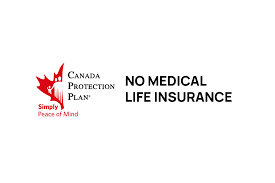When Critical Illness Strikes, Will You Be Ready?
By: Laarni Mae Bautista
I used to think critical illness insurance was one of those “nice to have” things—something you might consider later in life, if ever. That changed after I saw what happened to my friend’s mom.
She was one of those people who seemed invincible. She was in her early 50s, full of energy, always hosting family dinners and volunteering at the local animal church. She didn’t smoke, and walked five kilometers every morning. If you had asked anyone in her life, they’d have said she was the picture of health.
Then, out of nowhere, she was diagnosed with a cancer. One day she was out walking her dog, and the next she was in the hospital, facing surgery and months of recovery. It was a shock to everyone.
But what really stuck with me wasn’t just the diagnosis—it was how they handled everything that came after.
While most people would have been overwhelmed by the financial strain, they didn’t. They had taken out a critical illness insurance policy years earlier, almost as an afterthought. Their financial advisor had recommended it, and they figured, “Why not?” The premiums were affordable, and they liked the idea of having a backup plan.
That decision turned out to be one of the smartest she ever made.
How critical illness insurance works? Critical illness insurance is designed to provide a lump-sum, tax-free payment if you’re diagnosed with a serious illness listed in your policy. It’s different from life insurance or disability insurance in a few key ways:
You receive the money while you’re still alive, after diagnosis and survival of a short waiting period (usually 30 days).
The payout is not tied to your medical bills—you can use it however you want.
It covers specific illnesses, such as:
Cancer
Heart attack
Stroke
Organ transplant
Kidney failure
Multiple sclerosis
Coronary artery bypass surgery
Within a few weeks of her diagnosis, she received her benefit. She used it to:
Cover her mortgage while she was off work
Pay for a private physiotherapist to help her recover faster
Fly her relatives from out of town to help with meals and errands
Focus on healing instead of worrying about finances
That payout gave them the freedom to make choices that supported her recovery—not just physically, but emotionally and mentally too.
Watching them go through that made me realize something: critical illness insurance isn’t just about money. It’s about:
Peace of mind
Financial flexibility
Time to recover without pressure
Support for your family during a crisis
Since then, I’ve looked into getting a policy myself. I learned that most plans are customizable, and premiums are often lower when you’re younger and healthy.
Key Things to Know Before You Buy
Coverage varies: Some policies cover only 3 illnesses, others cover 25+.
There’s usually a waiting period: You must survive a set number of days after diagnosis (commonly 30).
You can buy it as a standalone policy or as a rider on life insurance.
Some policies offer a return of premium if you don’t make a claim.
According to my friend, she’s doing well now. She’s back to walking her dog, back to her community work, and back to being the vibrant person we all know and love. But she often says that her recovery would have looked very different without that insurance.
Her story changed how I think about planning for the future. It reminded me that being prepared isn’t pessimistic—it’s practical. And sometimes, it’s the quiet decisions we make in the background that end up saving us when it matters most.
Interested in learning more? I’m here to help you explore your options—no pressure, no obligation.
With access to multiple trusted insurance companies, I can help you find the best-fit coverage for your needs, including valuable features like Return of Premium.
Let’s make sure you and your loved ones are protected—your peace of mind is worth it.
Call/Email
Laarni Mae Bautista
Email: laarnimae_1016@yahoo.com
Phone: +1 (587) 969-4202
Or
Have questions? Message us and expect a response within 24 hours.




